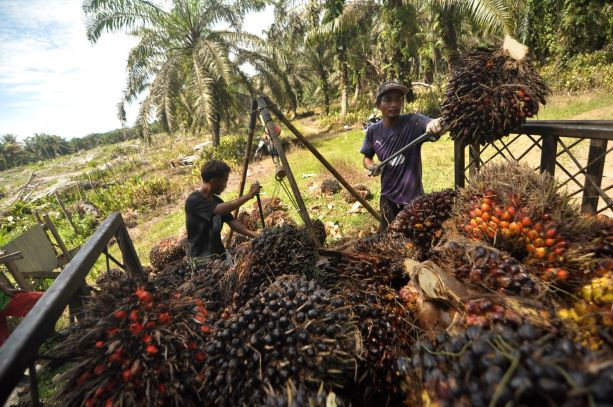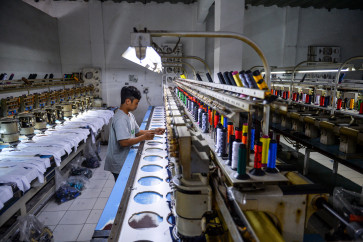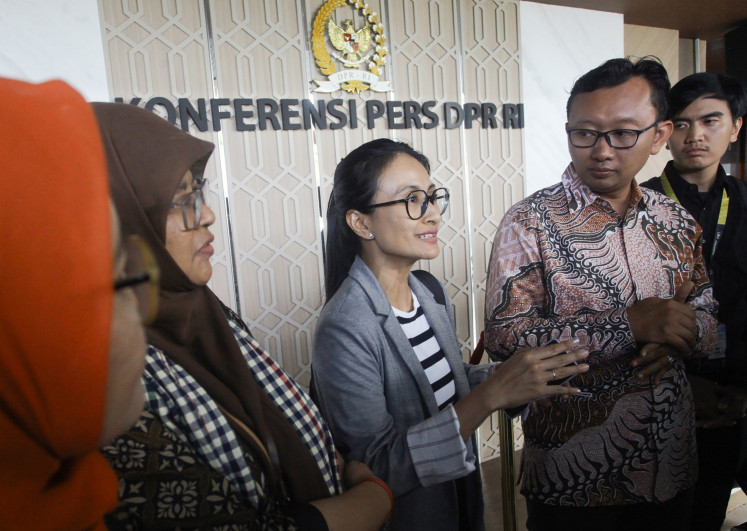Popular Reads
Top Results
Can't find what you're looking for?
View all search resultsPopular Reads
Top Results
Can't find what you're looking for?
View all search resultsForeign exchange export proceeds to boost the economy
The accumulation of implementation of regulations and incentives from BI will encourage an increase in the quantity of foreign exchange and guarantee the liquidity of the US dollar in the country.
Change text size
Gift Premium Articles
to Anyone
I
ndonesia is a country heavily reliant on exports to boost its economy. As a result, foreign exchange export proceeds play a significant role in maintaining the country's balance of payments and supporting its currency value. When Indonesian businesses engage in international trade and export goods or services, they earn foreign currency, which needs to be repatriated back to the country.
Foreign exchange export proceeds are crucial for Indonesia for several reasons. First, they contribute to the country's foreign reserves, which are essential for stabilizing the rupiah and defending against potential currency fluctuations. Secondly, these export earnings support the growth of domestic industries, create job opportunities and stimulate economic development.
Historically, Indonesia had regulations in place regarding the repatriation of foreign exchange export proceeds. Exporters were required to convert a percentage of their earnings into rupiah within a specific timeframe.
This policy aimed to ensure sufficient supply of rupiah in the domestic market and maintain the currency's stability. However, these regulations were not without criticism, as some argued they hindered businesses from fully benefiting from their export earnings and led to capital flight.
In recent years, the government has introduced new regulations related to foreign exchange export proceeds to address the challenges posed by the previous policies and improve the country's economic environment. While the specifics of these regulations may vary, some potential impacts could be as follows.
First, the new regulations aim to make it more attractive for exporters to bring their foreign exchange earnings back to Indonesia. By offering incentives or easing repatriation requirements, the government hopes to encourage exporters to comply willingly.
Second, if the new regulations succeed in increasing the repatriation of foreign exchange proceeds, they could bolster Indonesia's foreign reserves. This would provide a more robust defense against currency volatility and improve overall economic stability.
Third, boosting domestic investment. With higher foreign reserves, the government can potentially invest in infrastructure development and other critical projects to boost the economy further. This can create a favorable environment for both domestic and foreign investors, leading to increased business activities and job opportunities. Next, if the new regulations promote a more competitive exchange rate, Indonesian exporters may find their goods and services more attractive in international markets.
This could lead to an increase in export volumes, further contributing to economic growth. However, while the new regulations may benefit the broader economy, they could pose challenges for certain exporters, especially those in sectors that heavily rely on foreign currency earnings. Compliance with the new rules may increase administrative burdens and operational costs for these businesses.
Bank Indonesia (BI) has provided incentives for entrepreneurs who deposit foreign exchange export proceeds in the domestic banking system as of March 1. Exporters who can store more and more natural foreign exchange export proceeds will receive incentives in the form of higher interest rates. Domestic banks that accept deposits of foreign exchange export proceeds will be splashed with incentives. Local banks collecting foreign exchange export proceeds can pass these on to BI. With an auction mechanism, banks can get the spread between the term deposit interest rate and the interest rate given by the customer.
The delay in the issuance of government regulations provides its own advantages. The data shows that the term deposit favored by exporters is only of one month tenor. Thus, the provision for storing foreign exchange export proceeds for a minimum of three months will prolong the depositing of funds and encourage an expansion of the tenor of longer-term deposits. The accumulation of the implementation of these regulations and incentives from BI will lead to an increase in the quantity of foreign exchange and guarantee the liquidity of United States dollars in the country.
Using the approach of last year's natural resource export contribution of around 30 percent of total exports, it is estimated that the potential inflow of dollar liquidity each month ranges from US$1 billion-$2.25 billion. Therefore, the increase in the domestic supply of US dollars is expected to encourage the stability of the rupiah exchange rate.
However, the conversion of foreign exchange export proceeds needs more attention. If there are problems with macroeconomic stability and/or financial system stability, foreign exchange export proceeds from natural resources should be converted in accordance with applicable regulations.
Furthermore, BI has anticipated those issues by synergizing with the government in implementing Government Regulation (PP) on foreign exchange proceeds from the export of natural resources (DHE SDA) in the form of establishing instruments for the placement of export proceeds and arrangements for monitoring and supervision. The determination of the instrument refers to three principles.
First, in line with the provisions in PP DHE SDA; second, utilization of said foreign exchange export proceeds for domestic needs; and third, arrangements for other permitted instruments will be carried out later, still based on the first and second principles.
BI stipulates seven types of instruments that can be instruments for placement of foreign exchange export proceeds and utilization of these instruments for placement of foreign exchange export proceeds for now, namely, special accounts for foreign exchange export proceeds; bank foreign exchange deposits; term deposits in foreign currencies; promissory notes of the Indonesian Export Financing Agency (LPEI); placement of foreign currency deposits that can be used as collateral for rupiah loans; customer-bank; and bank-BI foreign exchange swaps.
To strengthen the effectiveness of the PP DHE SDA implementation, BI will also decide to strengthen the supervision and reporting of foreign exchange export proceeds obligations.
Foreign exchange export proceeds play a crucial role in Indonesia's economy, supporting its currency and economic development. With the introduction of new regulations related to repatriation, the government aims to strike a balance between encouraging exporters to bring back their earnings and maintaining a competitive business environment. The impact of these regulations will depend on their specific details and how well they align with the country's economic objectives.
As the situation evolves, it will be essential for the government to monitor the effects closely and make necessary adjustments to ensure sustainable economic growth.
***
The writer is a senior economist at the Macroprudential Policy Department of Bank Indonesia. The views in this article are his own.










